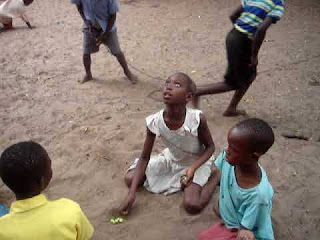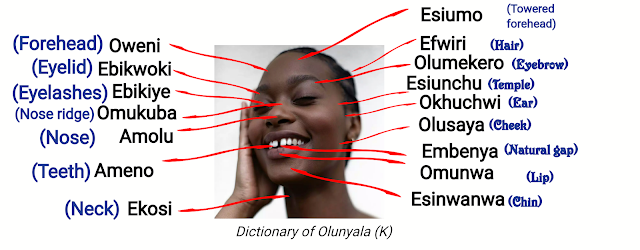ABANYALA BA KAKAMEGA: CULTURAL RITE OF OKHWINGISA ABEULI.
Among the Abanyala ba Kakamega, a son always has a ceremony to officially welcome his parent into his home. This ceremony, omuyimo, is called okhwingisa.
It is after this ceremony that a male parent could be allowed to participate in other rites that required the participation of the parent by eating in the home of his son. Only uncles who are bakoki to the son could eat in the house before this ceremony based on the bakoki relation.
The ceremony allowed the father to pave way such that his brothers can also eat a meal in the house of the son. After this ceremony, the son was also free to host the father-in-laws.
Conditions before the rite is done.
- The wife must have been given an express permission to start cooking in her house by the mother-in-law.
- It was a male-marked rite since one cannot welcome the mother alone and claim to have preformed this right.
- The two, hosting the function, must not be staying in a cottage that was once used by other family members. In case of staying in ones personal cottage, then the cooking must be done from a kitchen build by the host.
- At least part of dowry must have been paid by the time of this rite.
- The guest being invited must have done the same to his parents.
1. OKHWINGISA WHEN FATHER IS STILL ALIVE
Procedure
The son, without any formative respect to seniority, informs the father of his intention to welcome him to this rite. The main guest visitor in this function was the father. He always came around with his wife or wives and some brothers. The males from the wife's family never formed part of this visit. The father-in-law was not supposed to be officially welcomed by the son-in-law before doing the same to the biological father in the house. The wife to the host had to be given a jogoo that would be eaten by the father-in-law during the visit.
On the D-day, the son and daughter-in-law must be in the home to welcome their parent. The son welcomes the father into the home and, at the door, the daughter-in-law welcomes the father-in-law into the main house. The main meal for the father, chicken and ugali, has to be cooked by the son's wife. However, the sisters or cousins to the wife (not clans-mates) are the ones who can help in the kitchen chores in case the father has to come with many of his brothers. Ugali made from millet was mandatory but nowadays any can do. When serving, the father was treated as the main guest in matters protocol. The father has powers to eat the cooked emondo in the son's house. So, he should not leave it on this occasion.
The bones and the cleared meal items from the table are never given to dogs, chicken or to any other animal. They were safely collected and disposed off by the father or the host himself at a safer place.
In case ones biological father was dead, then his paternal uncles could perform this duty. However, if the dead parent had not done the same for his parents, then it was the duty of the first born child, the eldest one alive among the living sons, to welcome his paternal grandfathers or granduncles on behalf his dead father. This was usually done before welcoming the representative to the dead father in any of the son's ceremony of okhwingisa. After the eldest son holding this ceremony on behalf of the father, then he has to also do it for himself by inviting the paternal uncle.
The host.
No conjugal duties, okhunina ebiri, are undertaken on the eve to the ceremony and night proceeding the ceremony. No other animal can be slaughtered in the home on the same day after the ceremony; unless it is being done during a funeral. The host could have brothers around to keep him company. This ensured the brother are sure that no mischief was being played against them.
Main blessing ceremony.
This was done by the father as the last to speak after his other visitors. He thanked the host for the welcome and gave his blessings to the family. If hosting it on behalf of the dead, his name had to be invoked in the blessings.
Presents during the ceremony.
The main present during this ceremony are called ebikangiso. The present for the father was a cockerel got from the son's house.The cock must have spend a night in the son's house. If it is bought or got from elsewhere, let it not be from the wife's clan. However, one was free to give anything extra based on the friendship with the parent. There was no harm in giving echabe to the father and some small presents to the male who accompanied the father.
If the ceremony is being done during a funeral, no presents are presented.
Departure
The father had to go back to his house without going into any other person's home. The host did not escort the parents and had to spend a night in that home. When being done during a funeral, the issue of going back to the father's house was not mandatory.
Visit by the father-in-law.
After this ceremony, the son-in-law could then welcome the father-in-law or the wife's side for a normal visit and share a meal. this is not called okhuingisa by any standards.
2. OKHWINGISA DURING THE FUNERAL
After an elaborate promise to do this rite for the father is made, the son has to do it in case the promised father passes on before this ceremony. It can also be done to allow the parents to the girl to take a meal in their daughter's house during the funeral of the father to the son in law.
The procedure is usually a simple. A close brother to the dead is usually informed to inform other brothers of the ceremony before burial day. On the selected day the brothers visits the house in which the body is and asks for permission to go and take a meal on its behalf. The brothers to the dead go to get the meal before the sunlight of esanya ends. After taking the meal, they report back to the dead that they have completed the ceremony- without diverting to talk to anybody, that they have completed the ceremony.
3. OKHWINGISA IN CASE THE PARENTS DIED
This is done by any of the brothers to the dead as the gusts upon request in the same way it would have been done by the father.
4. OKHWINGISA UPON THE DEATH OF THE SON
In an unfortunate event that the son passes on before performing this ceremony leaving a wife, this ceremony can be done to allow the father to the wife take a meal in the home. During this ceremony, the wife asks permission from the dead husband to be allowed to prepare a meal for the husband's father and mother. The meal is then prepared the wife and if she is not yet strong to do it, then an alibi to the widow (woman selected to cook for the widow) but under verbal instructions of the widow. Serving is done in the son's house.
In case the wife comes from afar, the chicken used comes from her stock of chicken, she moves with it up to amasang'angira and comes back with it pretending she has come with it from home..



Comments
Post a Comment